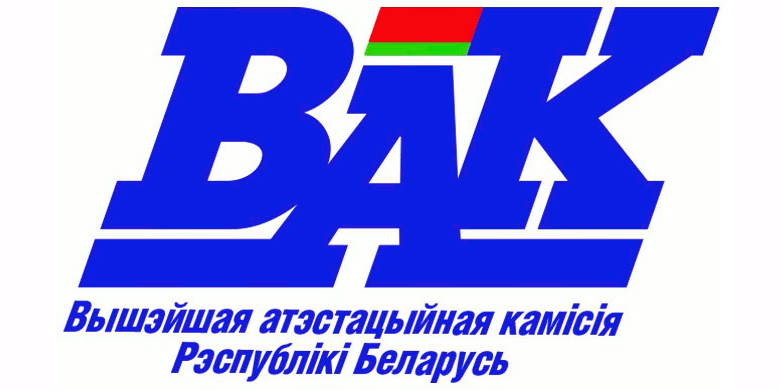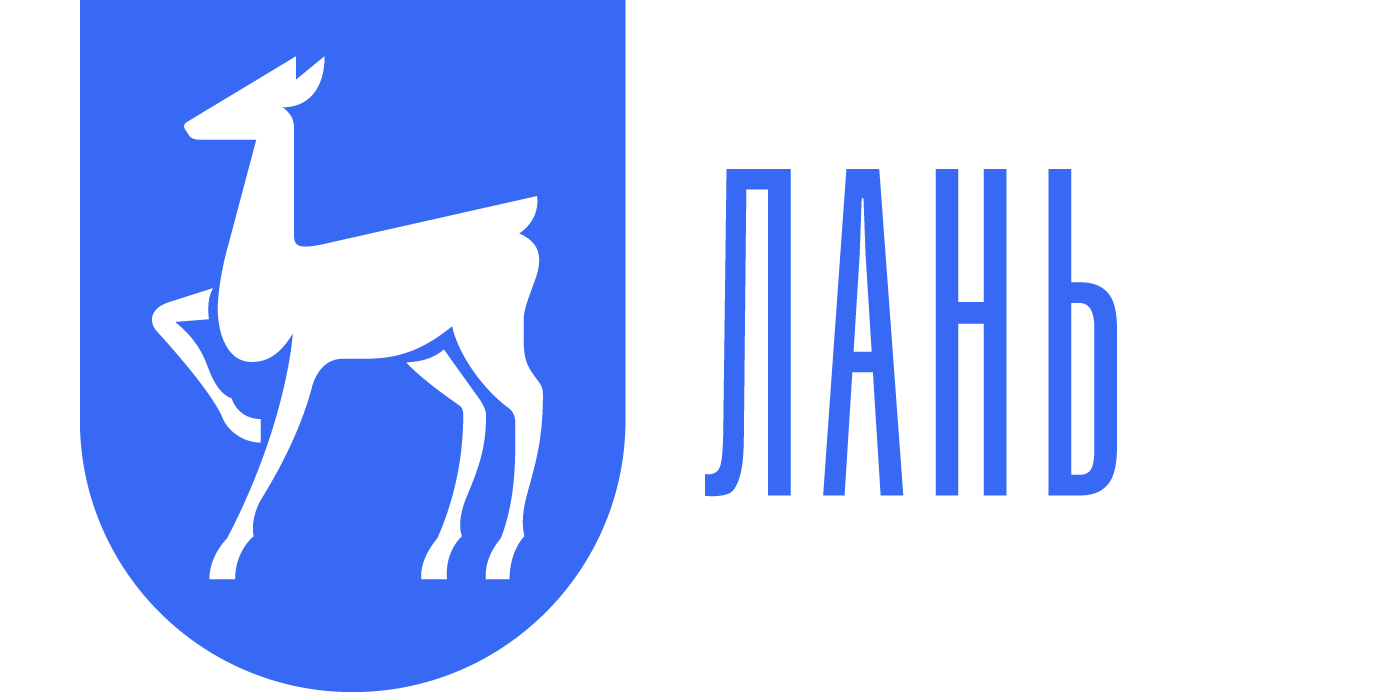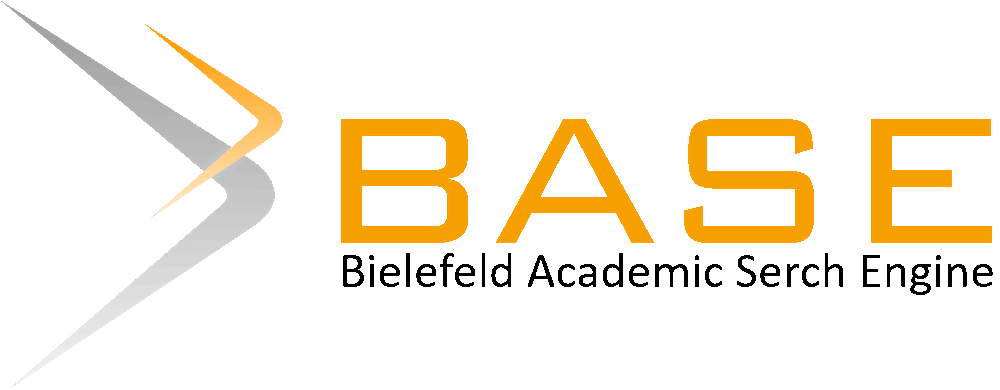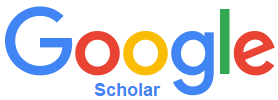Информационная культура в образовании : научный ландшафт зарубежных исследований
Ключевые слова:
информационная культура, информационная грамотность, систематический обзор, методология PRISMA, зарубежные диссертации, научный ландшафт, ключевые концепции и теорииАннотация
Цель – изучить научный ландшафт зарубежных диссертационных исследований, тематика которых связана с информационной культурой в образовании; выявить специфику определений и трактовок понятий «информационная культура», «информационная грамотность» в педагогическом контексте; изучить ключевые концепции и теории, на которые опираются в своих исследованиях зарубежные коллеги; выявить пробелы в зарубежных исследованиях с позиции разработки научно-методической системы развития информационной культуры педагога профессионального образования.
Материалы и методы. В целях актуализации темы нашего исследования в данной статье представлены результаты анализа полных текстов зарубежных докторских диссертаций за период с 1990 по 2024 гг. (поиск осуществлялся по базе данных ProQuest Dissertations and Theses), проведенного с использованием отдельных элементов методологии PRISMA, предназначенной для подготовки систематического обзора. Анализ диссертаций проводился на основе разработанных нами критериев. Использованы также контент-анализ источников и сравнительно-сопоставительный метод.
Результаты. В ходе исследования установлена динамика роста исследовательского интереса к проблеме: после единичных работ в 1990-х и начале 2000-х годов наблюдается значительное увеличение числа защищенных диссертаций с 2015 года. Выявлено доминирование термина «информационная грамотность» (Information Literacy) в зарубежном академическом дискурсе по данной теме. Его содержание раскрывается преимущественно через стандарты Американской библиотечной ассоциации (ALA) и Ассоциации библиотек колледжей и научных библиотек (ACRL), в частности ACRL Standards (2000) и, в последние годы, ACRL Framework (2016), акцентирующий внимание на концептуальных порогах и метакогнитивных аспектах. Понятие «информационная культура» как отдельный, четко определенный конструкт встречается в проанализированных работах значительно реже. Систематизирован спектр теоретико-методологических оснований зарубежных исследований. Установлено, что авторы опираются на конструктивистские и социокультурные теории обучения (J. Bruner, Л.С. Выготский), концепции критической информационной грамотности (J. Elmborg), непрерывного обучения, таксономию Б. Блума, теорию самоэффективности (А. Bandura), концепции социального и профессионального капитала, теорию сообществ практиков (E. Wenger), а также специфические модели, например, «Семь граней информационной грамотности» (Ch. Bruce). Констатировано, что основное внимание в зарубежных диссертациях уделяется формированию информационной грамотности у студентов (разных уровней образования) и роли библиотекарей в этом процессе. Вопросы разработки комплексных научно-методических систем формирования развития информационной культуры (как феномена, включающего не только знания и умения, но и ценности, мотивацию, нормы поведения в информационной среде) именно у педагогов профессионального образования остаются недостаточно исследованной областью в зарубежном диссертационном ландшафте рассматриваемого периода.
Заключение. Цель исследования достигнута. Выявлены пробелы в зарубежных диссертационных исследованиях с позиции разработки научно-методической системы развития информационной культуры педагога профессионального образования. Несмотря на значительное внимание к информационной культуре / грамотности студентов и иных категорий обучающихся, комплексные модели и системы, направленные на формирование и развитие именно информационной культуры (включая ее аксиологический, мотивационный, рефлексивный компоненты) у педагогов профессионального образования, представлены недостаточно.
Библиографические ссылки
Кулакова, Е. Н. Систематическое обзорное исследование литературы по методологии scoping review: история, теория и практика / Е. Н. Кулакова, Т. Л. Настаушева, М. В Кондратьева // Вопросы современной педиатрии. – 2021. – № 20 (3). – С. 210–222. – https://doi.org/10.15690/vsp.v20i3/2271.
Doyle, Ch. S. Development of a model of information literacy outcome measures within National Education Goals of 1990 / Ch. S. Doyle. – Northern Arizona University, 1992. – 193 p. – Published by ProQuest LLC.
Beile O'Neil, P. M. Development and validation of the Beile Test of Information Literacy for Education (B-TILED) / P. M. Beile O'Neil. – Florida : University of Central Florida, 2005. – 271 p. – URL: https://stars.library.ucf.edu/etd/530 (date of access: 18.03.2025).
Selematsela, D. N. Strategies in Information Literacy Instruction in Academic Information Services / D. N. Selematsela. – University of Johannesburg, 2005. – 172 p. – Published by ProQuest LLC.
Jackson, M. Policy and Practice in the Development of «A» Level Students' Information Literacy / M. Jackson. – Newcastle : University of Northumbria, 2006. – 175 p. – Published by ProQuest LLC.
Scharf, D. An intervention and assessment to improve information literacy / D. Scharf . – New Brunswick ; New Jersey : Rutgers The State University of New Jersey, 2013. – 290 p. – Published by ProQuest LLC.
A Progress Report on Information Literacy: An Update on the American Library Association Presidential Committee on Information Literacy: Final Report // Association of College and Research Libraries. – 1989. – URL: https://www.ala.org/acrl/publications/ whitepapers/progressreport (date of access: 18.03.2025).
Anderson, A. L. Conceptualization and practice of information literacy instruction in community colleges / A. L. Anderson ; Iowa State University. – Ames, Iowa : Iowa State University, 2016. – 119 p. – Published by ProQuest LLC.
Flood, P. A. Critical thinking skills and in-formation literacy skills: Discerning online information among high school students / P. A. Flood. – Lynchburg : Liberty University, 2015. – 134 p. – Published by ProQuest LLC.
Houth, W. I. Information Literacy: A Comparative Analysis of Instructional Treatment and Plagiarism Reduction / W. I. Houth. – Arizona : University of Phoenix, 2017. – 197 p. – Published by ProQuest LLC.
Schachter, D. Bridging the gap between theory and practice: critical information literacy teaching in Canadian higher education / D. Schachter. – The University of Edinburgh, 2019. – 273 p. – URL: https://era.ed.ac.uk/bitstream/handle/1842/36071/ (date of access: 18.03.2025).
Roberson, E. C. Community college composition faculty in information literacy assessment: A qualitative phenomenological exploration / E. C. Roberson. – Arizona : University of Phoenix, 2016. – 167 p. – Published by ProQuest LLC.
Taylor, P. D. Promoting Information Literacy through Teacher – School Library Media Specialist Collaboration / P. D. Taylor. – Minnesota : Walden University, 2015. – 195 p. – URL: https://scholarworks.waldenu.edu (date of access: 18.03.2025).
Tragert, J. P. Analyzing Information Literacy Skills in Marketing Department Learning Outcomes: A Pilot Study / J. P. Tragert. – Massachusetts : Endicott College, 2022. – 138 p. – Published by ProQuest LLC.
ACRL Standards: Information Literacy Competency Standards for Higher Education = Стандарты компетенций в области информационной грамотности // C&RL News. – 2000, March. – Pp. 207–215. – URL: https://crln.acrl.org/index.php/crlnews/article/ viewFile/19242/22394 (date of access: 18.03.2025).
ACRL Framework: Framework for Infor-mation Literacy for Higher Education = Рамки информационной грамотности для высшего образования : Filed by the ACRL Board on February 2, 2015 ; Adopted by the ACRL Board, January 11, 2016. – URL: https://www.ala.org/acrl/standards/ilframework (date of access: 18.03.2025).
Adeyiga, V. J. The Relationship Between Information Literacy and Global Learning / V. J. Adeyiga. – Florida : Florida Interna-tional University, 2017. – 160 p. – URL: https://digitalcommons.fiu.edu/etd/3395 (date of access: 18.03.2025).
Dean, C. J. Identifying and Facilitating a Community of Practice in Information Literacy in Higher Education / C. J. Dean. – Robert Gordon University, 2020. – 297 p. – URL: https://openair.rgu.ac.uk (date of access: 18.03.2025).
Johnson, B. Investigating Students’ Experiences With Information Literacy to Understand How Behaviors and Dispositions Impact Application of IL Concepts / B. Johnson. – Buffalo : State University of New York, 2024. – 273 p. – Published by ProQuest LLC.
Kester, B. N. Investigating Chinese Graduate International Students’ Experiences With Information Literacy / B. N. Kester. – University of Florida, 2024. – 182 p. – Published by ProQuest LLC.
Sacharow, S. B. Information Literacy: A Pathway to Success for Florida College Learners / S. B. Sacharow. – Florida : Florida Atlantic University, 2019. – 141 p. – Published by ProQuest LLC.
Duke, D. Two-Session Information Literacy Program Effectiveness for Rural First-Year Undergraduates / D. Duke. – Minnesota : Walden University, 2020. – 162 p. – URL: https://scholarworks.waldenu.edu (date of access: 18.03.2025).
Hebert, H. S. Incoming Online Graduate Student Information Literacy Knowledge and Self-Efficacy: A Mixed-Methods Study / H. S. Hebert. – Tennessee : Middle Tennessee State University, 2024. – 163 p. – URL: https://jewlscholar.mtsu.edu/server/api/core/bitstreams/ 3c71bc60-a68e-42c0-84b2-da154671e8b0/content (date of access: 18.03.2025).
Golton, L. A. Building Professional Capital: Teachers Information Literacy Practices Using Twitter / L. A. Golton. – Manchester : University of Manchester, 2020. – 241 p. – Published by ProQuest LLC.
Michaud, M. E. Information Literacy in the First Year of Higher Education: Faculty Expectations and Student Practices / M. E. Michaud. – Oregon : Portland State University, 2016. – 168 p. – https://doi.org/10.15760/etd.3074.
ISTE Standards. – URL: https://iste.org/standards (date of access: 18.03.2025).
AASL Standards Framework for Learners. – URL: https://standards.aasl.org /framework/ (date of access: 18.03.2025).
McGrath, L. High School Teachers’ Perceptions of Student Information Literacy Competency Skills, Levels of Teacher Librarian Collaboration, and Teacher Experiences of Collaboration with School Librarians in the Mountain West: A Mixed Methods Study / L. McGrath. – Idaho : Northwest Nazarene University, 2024. – 356 p. – URL: https://www.researchgate.net/publication/381352869 (date of access: 18.03.2025).
Nabors, S. Examining Information Literacy Skills Instruction within Inquiry Learning Environments / S. Nabors. – Carrollton : University of West Georgia, 2019. – 210 p. – Published by ProQuest LLC.
Tran, J. T. Q. T. Secondary Teachers’ Per-ception of Information Literacy Skills and Their Instruction in the Classroom / J. T. Q. T. Tran. – Los Angeles : University of California, 2022. – 124 p. – Published by ProQuest LLC.
Bruce, Ch. S. Seven Faces of Information Literacy : Towards inviting students into new experiences / Ch. S. Bruce. – Adelaide Auslib Press, 1997. – 50 p. – URL: https://www.researchgate.net/publication/239229387_The_Seven_Faces_of_Information_Literacy (date of access: 18.03.2025).
Carrington, A. The Padagogy Wheel / A. Carrington // Education Technology Solu-tions. – 2016. – № 6 (June). – URL: https://educationtechnologysolutions.com/2016/06/ padagogy-wheel/ (date of access: 18.03.2025).
Формирование надпрофессиональных компетенций в процессе непрерывного профессионального образования : метод. Пособие / Е. Л. Касьяник [и др.] ; под ред. В. Н. Голубовского. – Минск : ИВЦ Минфина, 2020. – 247 с.
Nahapiet, J. Social Capital, Intellectual Capital, and the Organizational Advantage / J. Nahapiet // Academy of Management Review. – 1998. – № 23 (2) (April). – DOI: 10.2307/259373.
Elmborg, J. Critical Information Literacy: Definitions and Challenges / J. Elmborg // Wilkinson, C. Transforming Information Literacy Programs: Intersecting Frontiers of Self, Library Culture, and Campus Community / C. Wilkinson, C. Bruch ; Association of College & Research Libraries.– 2012. – Vol. 64. – Pp. 75–95. – URL: https://iro.uiowa.edu/esploro/outputs/bookChapter/Critical-Information-Literacy-Definitions-and-Challenges/9983557574202771 (date of access: 18.03.2025).
Образование: сокрытое сокровище (Learning: The Treasure Within) : Основные положения Доклада Междунар. Комиссии по образованию для XXI века / Ж. Делор [и др.]. – М. : ЮНЕСКО, 1996 ; 2007. – 31 с. – URL: http://www.ifap.ru/library/book201.pdf (дата обращения: 18.03.2025).
Anspach, A. Kegan's Theory of Develop-ment – Framework for how to be an Adult / A. Anspach. – URL: https://aliveandthriving.substack.com/p/kegans-theory-of-development-framework (date of access: 18.03.2025).
Bandura, A. Self-efficacy: Toward a Unifying Theory of Behavioral Change / A. Bandura // Psychological Review. – 1977. – Vol. 84, № 2. – P. 191–215. – URL: https://educational-innova-tion.sydney.edu.au/news/pdfs/Bandura%201977.pdf (date of access: 18.03.2025).
References
Kulakova E.N., Nastausheva T.L., Kon-dratyeva M.V. Sistematicheskoe obzornoe issledovanie literatury po metodologii scoping review: istoriya, teoriya I praktika [A systematic review of the literature on scoping review methodology: history, theory and practice]. Voprosy sovremennoy pediatrii [Issues of modern paediatrics]. 2021, no. 20 (3), pp. 210–222. (In Russian) https://doi.org/10.15690/vsp.v20i3/2271.
Doyle Ch. S. Development of a model of information literacy outcome measures within National Education Goals of 1990. Northern Arizona University, 1992, 193 p. Published by ProQuest LLC.
Beile O'Neil P. M. Development and validation of the Beile Test of Information Literacy for Education (B-TILED). University of Central Florida, 2005, 271 p. Available at: https://stars.library.ucf.edu/etd/530 (ac-cessed: 18.03.2025).
Selematsela D. N. Strategies in Information Literacy Instruction in Academic Information Services. University of Johannesburg, 2005, 172 p. Published by ProQuest LLC.
Jackson M. Policy and Practice in the Development of «A» Level Students' Information Literacy. – Newcastle, University of Northumbria, 2006, 175 p. Published by ProQuest LLC.
Scharf D. An intervention and assessment to improve information literacy. New Brunswick, New Jersey, Rutgers The State University of New Jersey, 2013, 290 p. Published by ProQuest LLC.
A Progress Report on Information Literacy: An Update on the American Library Association Presidential Committee on Information Literacy: Final Report // Association of College and Research Libraries, 1989. Available at: https://www.ala.org/acrl/publications/whitepapers/ progressreport (accessed: 18.03.2025).
Anderson A. L. Conceptualization and practice of information literacy instruction in community colleges. Ames, Iowa, Iowa State University, 2016, 119 p. Published by ProQuest LLC.
Flood P. A. Critical thinking skills and information literacy skills: Discerning online information among high school students. Lynchburg, Liberty University, 2015, 134 p. Published by ProQuest LLC.
Houth W. I. Information Literacy: A Comparative Analysis of Instructional Treatment and Plagiarism Reduction. Arizona, University of Phoenix, 2017, 197 p. Published by ProQuest LLC.
Schachter D. Bridging the gap between theory and practice: critical information literacy teaching in Canadian higher education. The University of Edinburgh, 2019, 273 p. Available at: https://era.ed.ac.uk/bitstream/handle/1842/36071/ (accessed: 18.03.2025).
Roberson E. C. Community college composition faculty in information literacy assessment: A qualitative phenomenological exploration. Arizona, University of Phoenix, 2016, 167 p. Published by ProQuest LLC.
Taylor P. D. Promoting Information Literacy through Teacher – School Library Media Specialist Collaboration. Minnesota, Walden University, 2015, 195 p. Available at: https://scholarworks.waldenu.edu (accessed: 18.03.2025).
Tragert J. P. Analyzing Information Literacy Skills in Marketing Department Learning Outcomes: A Pilot Study. Massachusetts, Endicott College, 2022, 138 p. Published by ProQuest LLC.
ACRL Standards: Information Literacy Competency Standards for Higher Education. C&RL News, 2000, March, Pp. 207–215. Available at: https://crln.acrl.org/index.php/ crlnews/article/viewFile/19242/ 22394 (ac-cessed: 18.03.2025).
ACRL Framework: Framework for Infor-mation Literacy for Higher Education : Filed by the ACRL Board on February 2, 2015 ; Adopted by the ACRL Board, January 11, 2016. Available at: https://www.ala.org/acrl/standards/ilframework (accessed: 18.03.2025).
Adeyiga V. J. The Relationship Between Information Literacy and Global Learning. Florida International University, 2017, 160 p. Available at: https://digitalcommons.fiu.edu/etd/3395 (date of access: 18.03.2025).
Dean C. J. Identifying and Facilitating a Community of Practice in Information Literacy in Higher Education. Robert Gordon University, 2020, 297 p. Available at: https://openair.rgu.ac.uk (date of access: 18.03.2025).
Johnson B. Investigating Students’ Experiences With Information Literacy to Understand How Behaviors and Dispositions Impact Application of IL Concepts. Buffalo, State University of New York, 2024, 273 p. Published by ProQuest LLC.
Kester B. N. Investigating Chinese Graduate International Students’ Experiences With Information Literacy, University of Florida, 2024, 182 p. Published by ProQuest LLC.
Sacharow S. B. Information Literacy: A Pathway to Success for Florida College Learners. Florida Atlantic University, 2019, 141 p. Published by ProQuest LLC.
Duke D. Two-Session Information Literacy Program Effectiveness for Rural First-Year Undergraduates. Minnesota, Walden University, 2020, 162 p. Available at: https://scholarworks.waldenu.edu (accessed: 18.03.2025).
Hebert H. S. Incoming Online Graduate Student Information Literacy Knowledge and Self-Efficacy: A Mixed-Methods Study. Tennessee, Middle Tennessee State University, 2024, 163 p. Available at: https://jewlscholar.mtsu.edu/server/api/core/bitstreams/3c71bc60-a68e-42c0-84b2-da154671e8b0/content (ac-cessed:18.03.2025).
Golton L. A. Building Professional Capital: Teachers Information Literacy Practices Using Twitter. University of Manchester, 2020, 241 p. Published by ProQuest LLC.
Michaud M. E. Information Literacy in the First Year of Higher Education: Faculty Expectations and Student Practices. Oregon, Portland State University, 2016, 168 p. https://doi.org/10.15760/etd.3074.
ISTE Standards. Available at: https://iste.org/standards (accessed: 18.03.2025).
AASL Standards Framework for Learners. Available at: https://standards.aasl.org/ framework/ (date of access: 18.03.2025).
McGrath L. High School Teachers’ Perceptions of Student Information Literacy Competency Skills, Levels of Teacher Librarian Collaboration, and Teacher Experiences of Collaboration with School Librarians in the Mountain West: A Mixed Methods Study. Idaho, Northwest Nazarene University, 2024, 356 p. Available at: https://www.researchgate.net/ publication/381352869 (date of access: 18.03.2025).
Nabors S. Examining Information Literacy Skills Instruction within Inquiry Learning Environments. Carrollton, University of West Georgia, 2019, 210 p. Published by ProQuest LLC.
Tran J. T. Q. T. Secondary Teachers’ Per-ception of Information Literacy Skills and Their Instruction in the Classroom. Los Angeles, University of California, 2022, 124 p. Published by ProQuest LLC.
Bruce Ch. S. Seven Faces of Information Literacy: Towards inviting students into new experiences. Adelaide Auslib Press, 1997, 50 p. Available at: https://www.researchgate.net/ publica-tion/239229387_The_Seven_Faces_of_Information_Literacy (date of access: 18.03.2025).
Carrington A. The Padagogy Wheel. Education Technology Solutions, 2016, no. 6 (June). Available at: https://educationtechnologysolutions.com/2016/06/padagogy-wheel/ (accessed: 18.03.2025).
Kasyanik E. L., Kalitskiy E. M., Sichova Yu. S., Potapenko N. E., Belyaeva O. A., Demidko V. V., Belotskaya O. M., Apiok S. N., Perskaya T. A. Formirovanie nadprofessionalnyh kompetentciy v processe nepreryvnogo professionalnogo obrazovaniya: metodicheskoe posobie [Formation of supraprofessional competencies in the process of continuing professional education]. Minsk, IVC Minfina, 2020, 247 p. [In Russian].
Nahapiet J. Social Capital, Intellectual Capital, and the Organizational Advantage. Academy of Management Review, 1998, no. 23 (2) (April). DOI: 10.2307/259373.
Elmborg J. Critical Information Literacy: Definitions and Challenges // Wilkinson C., Bruch C. Transforming Information Literacy Programs: Intersecting Frontiers of Self, Library Culture, and Campus Community, 2012, Vol. 64, Pp. 75–95. Available at: https://iro.uiowa.edu/esploro/outputs/bookChapter/Critical-Information-Literacy-Definitions-and-Challenges/9983557574202771 (accessed: 18.03.2025).
Delor Zh. Obrazovanie: sokrytoe sokrovische [Learning: The Treasure With-in]. Osnovnye polozheniya Doklada Mezhdunarodnoy komissii poobrazovaniyu dlya XXI veka [Highlights of the Report of the International Commission on Education for the Twenty-first Century]. Moskva, UNESCO, 1996 ; 2007, 31 p. Available at: http://www.ifap.ru/library/book201.pdf (accessed:18.03.2025). (In Russian).
Anspach A. Kegan's Theory of Development – Framework for how to be an Adult. Available at: https://aliveandthriving.substack.com/p/kegans-theory-of-development-framework (accessed: 18.03.2025).
Bandura A. Self-efficacy: Toward a Unifying Theory of Behavioral Change. Psychological Review, 1977, Vol. 84, no. 2, P. 191–215. Available at: https://educational-innova-tion.sydney.edu.au/news/pdfs/Bandura%201977.pdf (accessed:18.03.2025).













